How to change the font, font size on Windows 10
Windows 10 is a very popular and popular operating system now by Microsoft. With Windows 10, the operating system is much more stable than before, plus there are many custom features that support users to customize the interface in a much simpler way. Today, Software Tips will guide you How to change the font and font size on Windows 10.

1. How to change the Font
Step 1: You proceed to open Control Pannel by entering Control Pannel in the Search bar in Start .

Step 2: When the Control Pannel is opened, enter Font in the search bar of the window. Then open the Font folder found by the system.
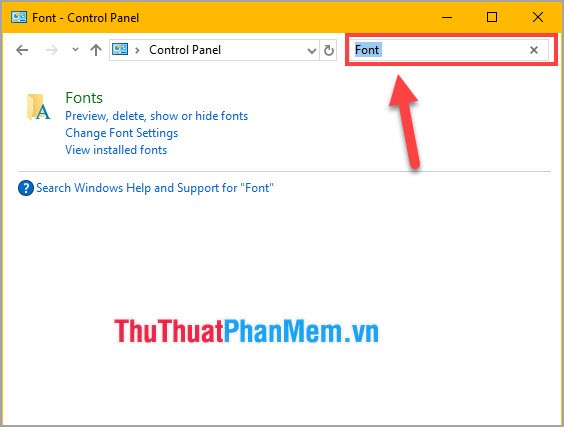
Step 3: At this time the system will appear a series of fonts available on your computer, hide this window away to continue.
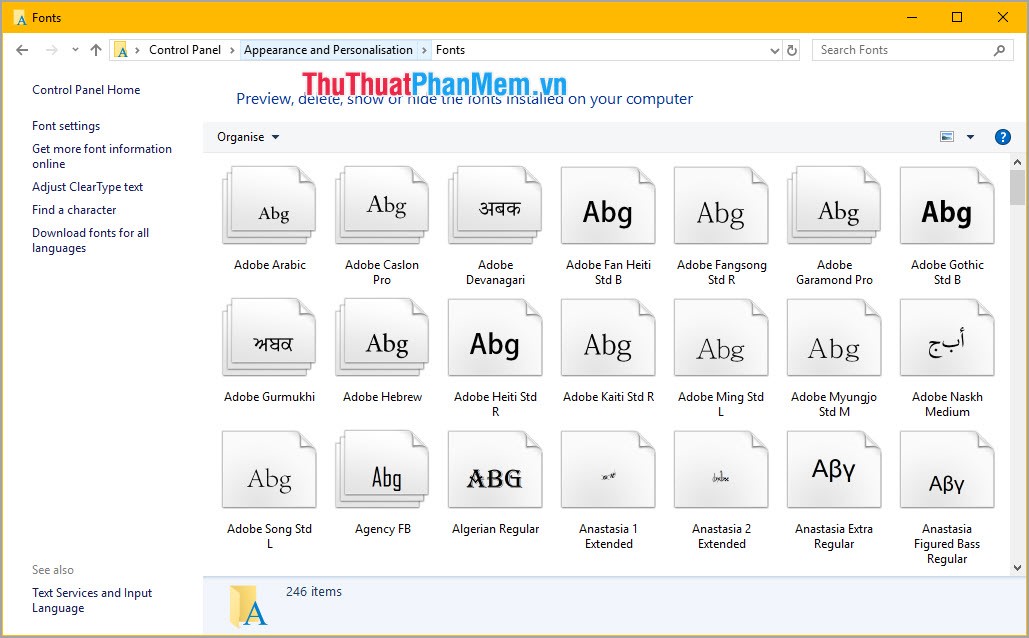
Step 4: You proceed to open Note Pad by entering Note Pad in the Search bar on Start .

Step 5: You proceed to enter the following code into Notepad just opened.
Windows Registry Editor Version 5.00
[HKEY_LOCAL_MACHINESOFTWAREMicrosoftWindows NTCurrentVersionFonts]
"Segoe UI (TrueType)" = ""
"Segoe UI Bold (TrueType)" = ""
"Segoe UI Bold Italic (TrueType)" = ""
"Segoe UI Italic (TrueType)" = ""
"Segoe UI Light (TrueType)" = ""
"Segoe UI Semibold (TrueType)" = ""
"Segoe UI Symbol (TrueType)" = ""
[HKEY_LOCAL_MACHINESOFTWAREMicrosoftWindows NTCurrentVersionFontSubstitutes]
"Segoe UI" = "ENTER-NEW- FONT-NAME "

Inside:
- ENTER-NEW-FONT-NAME: You proceed to replace with the Font name you want to change (See Font name in Step 3).
Step 6: When the Font name has been replaced, press Ctrl + S or File → Save as . to save it. Please note:
- File Name: Name anything, but must have * .reg extension (eg: Myfont.reg)
- Save as type: All File

Step 7: At this time, your home screen will have a Registry file you just saved. You double click to run this file.

Step 8: Click Yes to proceed to install the Registry .

So, you have successfully changed the Windows font.

To set the Font back to default, repeat Step 5 and replace it with the following code:
Windows Registry Editor Version 5.00
[HKEY_LOCAL_MACHINESOFTWAREMicrosoftWindows NTCurrentVersionFonts]
"Segoe UI (TrueType)" = "segoeui.ttf"
"Segoe UI Black (TrueType)" = "seguibl.ttf"
"Segoe UI Black Italic (TrueType)" = "seguibli.ttf "
" Segoe UI Bold (TrueType) "=" segoeuib.ttf "
" Segoe UI Bold Italic (TrueType) "=" segoeuiz.ttf "
" Segoe UI Emoji (TrueType) "=" seguiemj.ttf "
" Segoe UI Historic (TrueType ) "=" seguihis.ttf "
" Segoe UI Italic (TrueType) "=" segoeuii.ttf "
" Segoe UI Light (TrueType) "=" segoeuil.ttf "
" Segoe UI Light Italic (TrueType) "= "seguili.ttf"
"Segoe UI Semibold (TrueType)" = "seguisb.ttf"
"Segoe UI Semibold Italic (TrueType)" = "seguisbi.ttf"
"Segoe UI Semilight (TrueType)" = "segoeuisl.ttf"
"Segoe UI Semilight Italic (TrueType)" = "seguisli.ttf"
"Segoe UI Symbol (TrueType)" = "seguisym.ttf"
"Segoe MDL2 Assets (TrueType) "=" segmdl2.ttf "
" Segoe Print (TrueType) "=" segoepr.ttf "
" Segoe Print Bold (TrueType) "=" segoeprb.ttf "
" Segoe Script (TrueType) "=" segoesc.ttf "
" Segoe Script Bold (TrueType) "=" segoescb.ttf "
[HKEY_LOCAL_MACHINESOFTWAREMicrosoftWindows NTCurrentVersionFontSubstitutes]
" Segoe UI "= -
2. How to change the font size on Windows 10
Windows 10 has gone through many different versions, large and small, so in the Settings section of everyone will be slightly different depending on the different version of Windows.
Method 1: Change both the icon size, the font size.
Step 1: You proceed to open Settings and select Display .

Step 2: In the Scale and layout section , click to change the size. The default will have 4 levels: 100%, 125%, 150%, 175%.
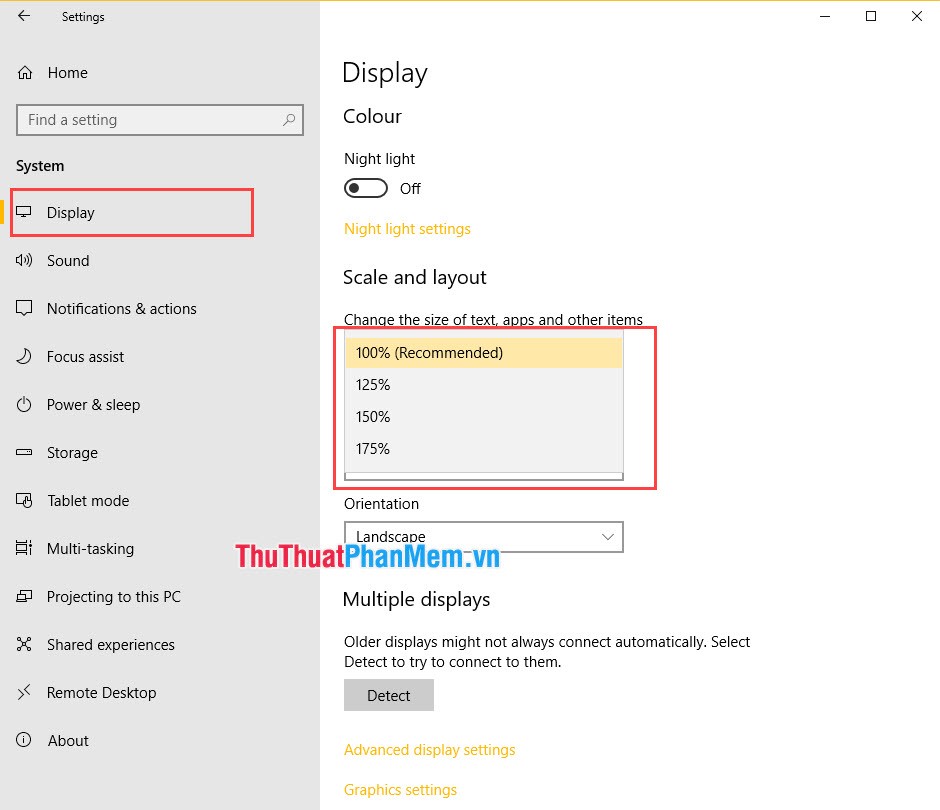
Also, if you want to customize the size according to your liking, then select Advanced scaling settings .

Then, you proceed to enter the% you want to increase the font size in this window and click Apply .
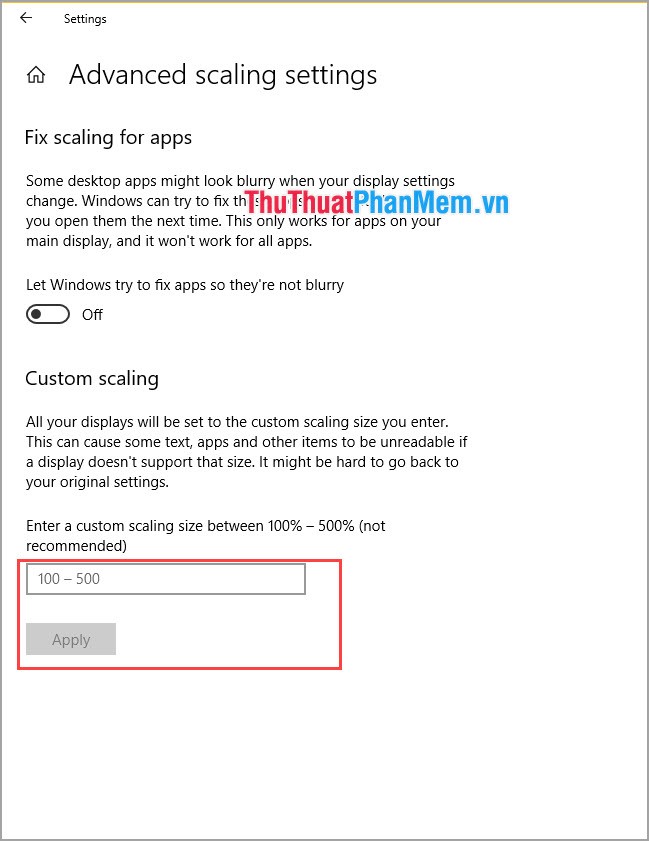
Step 3: The system will say There are a few applications that have not been resized. Click Sign out now to log out and restart the computer so that these settings can be adjusted to suit your needs.
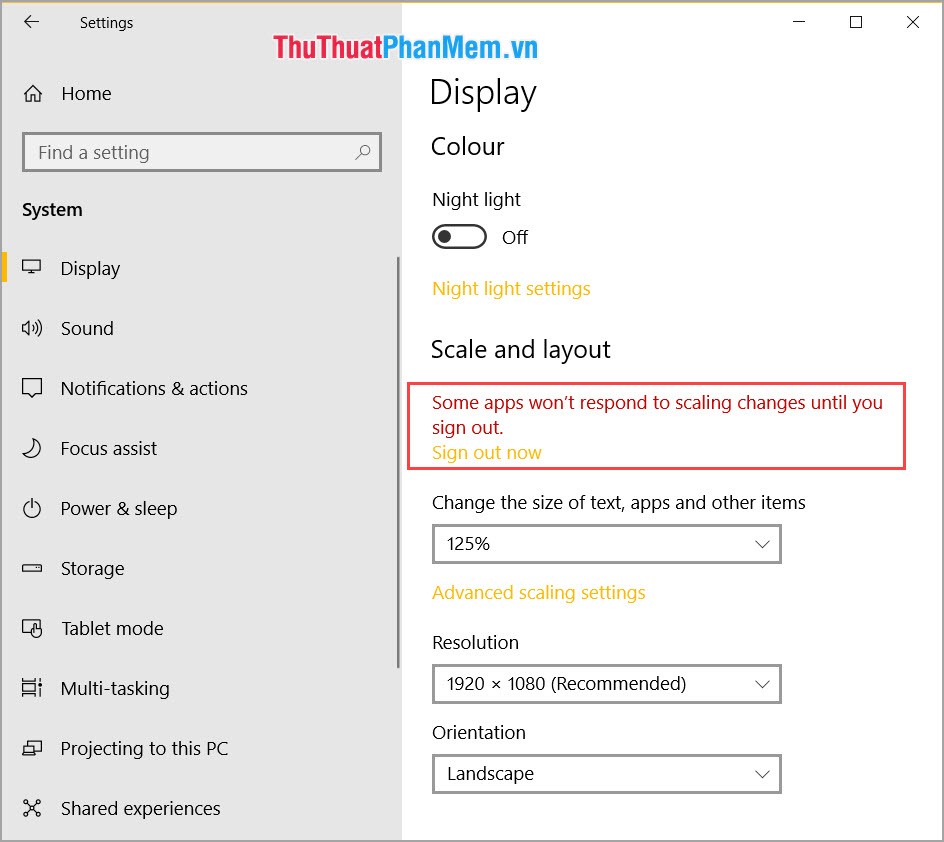
Method 2: Only change the font size
Step 1: In the Settings → Display window, proceed to select Advanced display settings .

Step 2: When the Advanced display settings window appears, select Advanced sizing of text and other items .

Step 3: Now you will be redirected to the Control Panel window . You proceed to select Set a custom scaling level .

Step 4: You proceed to select the size you want to increase and click OK .

Step 5: On the lower side, at Change only the text size you can choose to change each parameter one by one.
You can choose the font size for: Title bars, Menus, Message boxes, etc.

Step 6: Click Apply to apply the changes above.
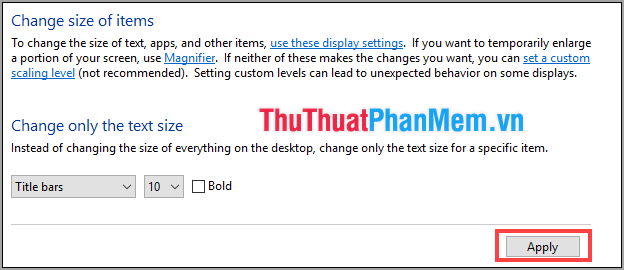
Thus, Software Tips guide you how to change the font and font size on Windows 10 in the fastest and most accurate way. Good luck!